
- Order:
- Duration: 30:50
- Published: 13 Jan 2011
- Uploaded: 24 Mar 2011
- Author: QueenslandPolice



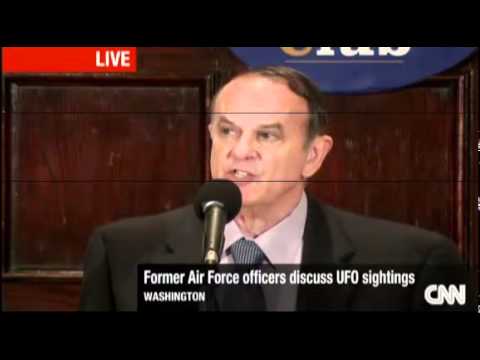



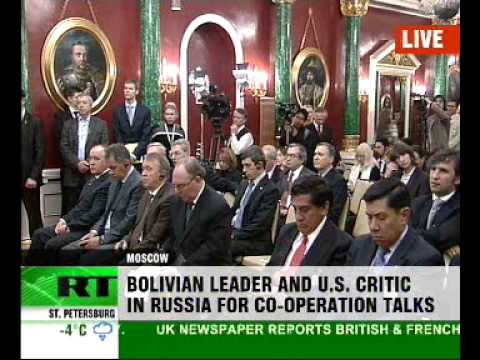

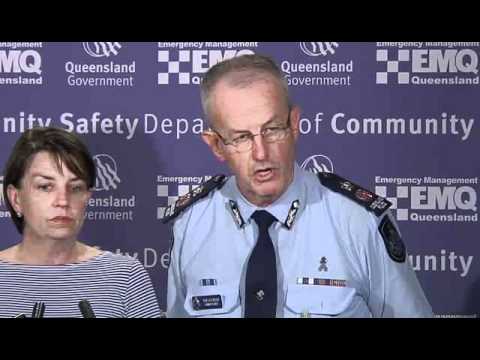



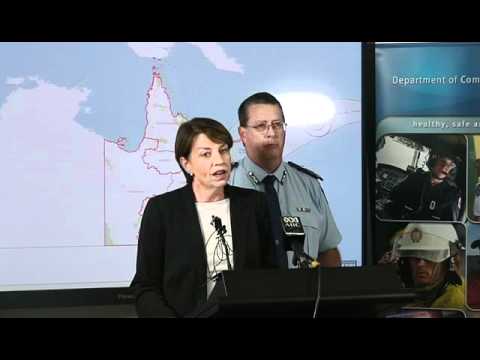






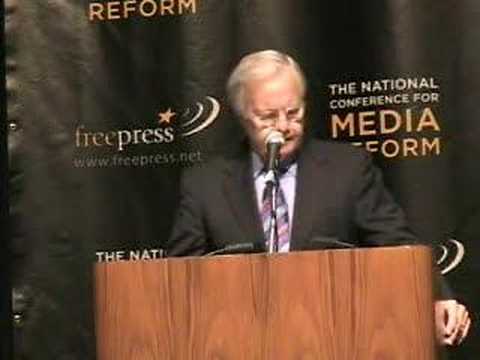














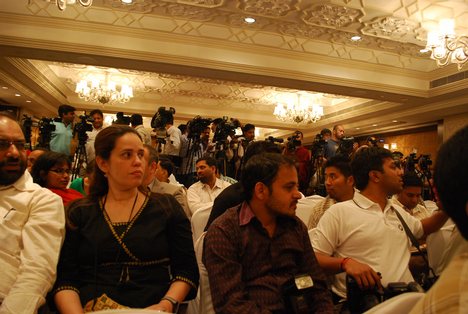
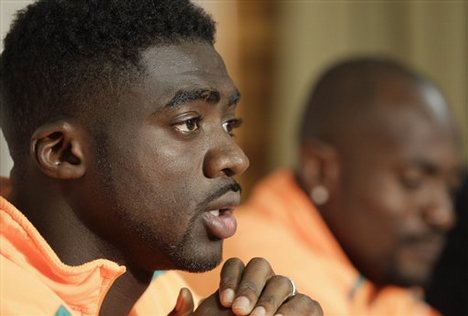
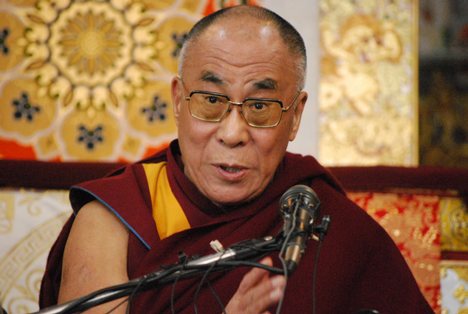




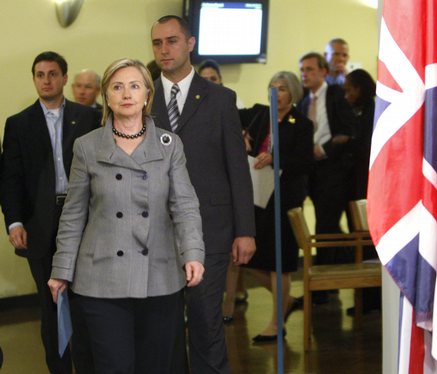
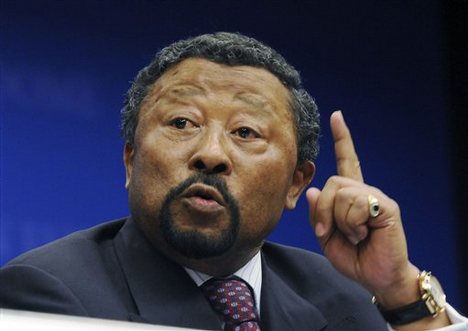


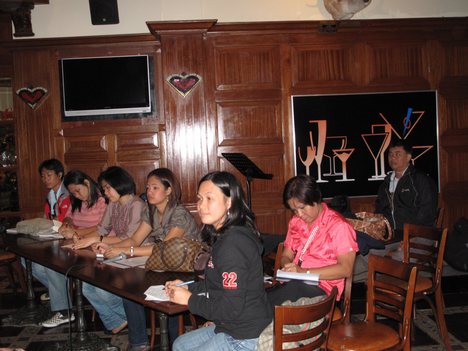



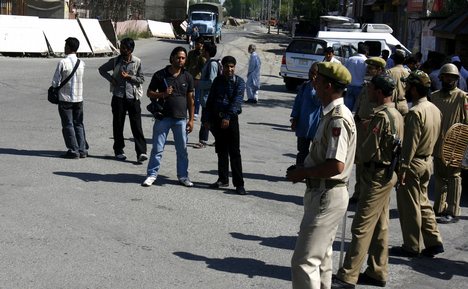







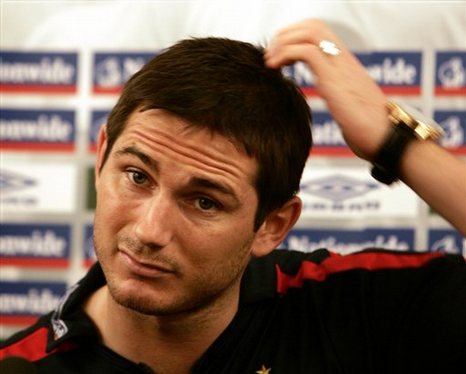


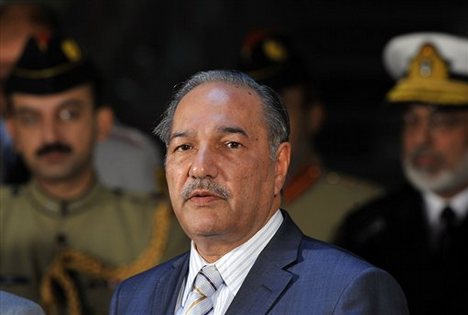
The online sales of CDs and DVDs as well as VHS tapes began to be included within the Top-100 single and album charts since January 2001 (for CDs) and July 2002 (for DVDs and VHS). It took a few years, however, for the sales of digital media to be counted towards the Media Control charts through digital media stores such as the iTunes Store when the evaluation of digital downloads was introduced in August 2004.
Digital-only releases came into existence on July 13, 2007 for online publication only, which also altered the way the sales figures were conducted up to that point. Consequently, chart positions would no longer be affected by the number of sold music downloads as before, but rather, they would be affected by the sales value of the sold product. Thus, the best-selling albums would not necessarily be the ones ending up in the number one position on the charts.
This text is licensed under the Creative Commons CC-BY-SA License. This text was originally published on Wikipedia and was developed by the Wikipedia community.
| Honorific-prefix | The Honourable |
|---|---|
| Name | Anna Bligh |
| Honorific-suffix | MP |
| Caption | Anna Bligh at Labour Day 2007 |
| Order | 37th Premier of QueenslandElections: 2009 |
| Term start | 13 September 2007 |
| Term end | |
| Deputy | Paul Lucas |
| Predecessor | Peter Beattie |
| Successor | |
| Birth date | July 14, 1960 |
| Birth place | Warwick, Queensland |
| Constituency | South Brisbane |
| Party | Australian Labor Party |
| Nationality | Australian |
| Spouse | Greg Withers |
Bligh is the first woman to be appointed Premier of Queensland, the third female Premier of an Australian state, and the sixth female head of government of an Australian state or territory. She is one of three current female heads of government in Australia (the others being Prime Minister Julia Gillard and Premier of New South Wales Kristina Keneally).
At the 2009 Queensland State Election, she became the first woman elected in her own right as a state premier in Australia.
In 2009, Bligh was elected to the three person presidential team of the Australian Labor Party, of which she will remain a part for three years. She currently serves as National President of the Australian Labor Party for the 2010–11 financial year.
She subsequently worked in a number of community organisations, including child care services, neighbourhood centres, women's refuges and trade unions as well as in the Queensland Public Service.
Bligh was the secretary of the Labor Party's Fairfield branch in 1987.
Bligh became Australia's first popularly elected female premier. The two previous female premiers, Carmen Lawrence (Western Australia 1990-93) and Joan Kirner (Victoria 1990-92), became premiers following the resignation of male premiers (as Bligh did), but both were defeated at the following respective state elections.
Bligh is not Australia's first popularly elected female head of government. Rosemary Follett and Kate Carnell were both popularly elected as Chief Minister of the Australian Capital Territory , and Clare Martin was elected as Chief Minister of the Northern Territory.
Premier Bligh's website is http://www.thepremier.qld.gov.au. She is also on Twitter at http://www.twitter.com/TheQldPremier and Facebook at http://www.facebook.com/Premier.Anna.Bligh
Queensland Motorways Limited and Forestry Plantations Queensland are not being sold, but rather being leased for an estimated 50 year lease.
Since this announcement, the Queensland Government has announced plans to sale Queensland Rail to the public. Details of this are proposed to be released in the 2010 Budget, due in June 2010.
Revenues from privatisation are estimated at approx. $15 billion dollars, and reportedly will go towards balancing the QLD state budget.
The sale of these assets aimed at removing significant overheads from the Queensland Government's debt portfolio, allowing further growth of the Governments capital assets, as well as aiding the government to return to its AAA credit rating.
Bligh has faced resistance from both within her party and the trade union movement, but has defended her privatisation plan as 'not negotiable'.
The 2009 Annual State Conference of the Australian Labor Party - Queensland Branch, passed a motion, moved by Treasurer Andrew Fraser MP, seconded by Parliamentary Secretary for Healthy Living Murray Watt MP, supporting the sale of the assets, recognising that the sale will allow the Queensland Government to grow its asset portfolio, as well as retire debt.
On 14 April 2010 Independent member for the Electoral district of Nicklin, Peter Wellington, introduced the Daylight Saving for South East Queensland Referendum Bill 2010 into Queensland Parliament, calling for a referendum to be held at the next State election on the introduction of daylight saving for South East Queensland only, while the remainder of the state maintains standard time. In response to this Bill, Bligh announced a community consultation process, which resulted in over 74,000 respondents participating, 64 percent of whom voted in favour of a trial and 63% were in favour of holding a referendum. On 7 June 2010, and after reviewing the consultation results, Bligh announced that her Government would not support the Bill, because regional Queenslanders were overwhelmingly opposed to daylight saving. The Bill is scheduled for debate in Parliament in early 2011.
Bligh is married to Greg Withers, a senior public servant, with whom she has two sons, Joe and Oliver, both of whom attended Brisbane State High School.
Bligh is a descendant of Cornishman William Bligh who is famous for the Mutiny on the Bounty and being the 4th Governor of New South Wales..
Category:1960 births Category:Australian atheists Category:Living people Category:Australian Labor Party politicians Category:Australian people of Cornish descent Category:Premiers of Queensland Category:Australian women in politics Category:Members of the Queensland Legislative Assembly Category:University of Queensland alumni Category:Bligh Cabinet
This text is licensed under the Creative Commons CC-BY-SA License. This text was originally published on Wikipedia and was developed by the Wikipedia community.
| Playername | Maria Sharapova |
|---|---|
| Nickname | Masha (diminutive) |
| Caption | Sharapova, holding the 2006 Acura Classic Cup |
| Country | |
| Residence | Bradenton, Florida, USA |
| Datebirth | April 19, 1987 |
| Placebirth | Nyagan, Russian SFSR, Soviet Union |
| Height | |
| Weight | |
| Turnedpro | April 19, 2001 |
| Plays | Right-handed (two-handed backhand) |
| Careerprizemoney | US$13,621,022 |
| Singlesrecord | 356 - 85 (81.0%) |
| Singlestitles | 22 WTA |
| Highestsinglesranking | No. 1 (August 22, 2005) |
| Currentsinglesranking | No. 16 (January 10, 2011) With money tight, Yuri was forced to borrow the sum that would allow him and his daughter, neither of whom could speak English, to travel to America, which they finally did in 1994. Visa restrictions prevented Sharapova's mother from joining them for two years. Arriving in Florida with just $700 to his name, Sharapova's father took various low-paying jobs, including dish-washing, to fund her lessons until she was old enough to be admitted to the academy. In 1995, she was signed by IMG, who agreed to pay the annual tuition fee of $35,000 for Sharapova to stay at the academy, allowing her to finally enroll at the age of 9. |
Category:Female tennis players Category:Australian Open (tennis) champions Category:People from Khanty-Mansi Autonomous Okrug Category:People from Manatee County, Florida Category:Russian expatriates in the United States Category:Russian female models Category:Russian female tennis players Category:Russian Orthodox Christians Category:United States Open champions (tennis) Category:Wimbledon champions Category:World No. 1 tennis players Category:1987 births Category:Living people
This text is licensed under the Creative Commons CC-BY-SA License. This text was originally published on Wikipedia and was developed by the Wikipedia community.
| Honorific-prefix | The Honourable |
|---|---|
| Name | Kevin Rudd |
| Honorific-suffix | MP |
| Office | Minister for Foreign Affairs |
| Primeminister | Julia Gillard |
| Term start | 14 September 2010 |
| Predecessor | Stephen Smith |
| Office2 | 26th Prime Minister of AustraliaElections: 2007 |
| Deputy2 | Julia Gillard |
| Term start2 | 3 December 2007 |
| Term end2 | 24 June 2010 |
| Predecessor2 | John Howard |
| Successor2 | Julia Gillard |
| Office3 | Leader of the Australian Labor Party |
| Deputy3 | Julia Gillard |
| Term start3 | 4 December 2006 |
| Term end3 | 24 June 2010 |
| Predecessor3 | Kim Beazley |
| Successor3 | Julia Gillard |
| Constituency mp4 | Griffith |
| Parliament4 | Australian |
| Term start4 | 3 October 1998 |
| Predecessor4 | Graeme McDougall |
| Birth date | September 21, 1957 |
| Birth place | Nambour, Australia |
| Party | Labor Party |
| Spouse | Thérèse Rein |
| Alma mater | Australian National University |
| Profession | DiplomatPublic servant |
| Religion | Anglicanism Two years later, after she retrained as a nurse, his mother moved the family to Nambour, and Rudd rebuilt his standing through study and scholastic application and was dux of Nambour State High School in 1974. The White Paper was criticised by the Federal Government's climate change advisor, Professor Ross Garnaut. |
| Name | Rudd, Kevin |
| Date of birth | 21 September 1957 |
| Place of birth | Nambour, Australia |
This text is licensed under the Creative Commons CC-BY-SA License. This text was originally published on Wikipedia and was developed by the Wikipedia community.
| Name | Julian Assange |
|---|---|
| Caption | Assange in 2010 |
| Birth date | July 03, 1971Amnesty International UK Media Award (2009)Sam Adams Award (2010) |
| Death date | |
| Nationality | Australian |
Assange founded the WikiLeaks website in 2006 and serves on its advisory board. He has published material about extrajudicial killings in Kenya, toxic waste dumping in Côte d'Ivoire, Church of Scientology manuals, Guantanamo Bay procedures, and banks such as Kaupthing and Julius Baer.
Assange is currently wanted for questioning in Sweden regarding alleged sexual offences, and was arrested in London, England on 7 December 2010.
In 1979, his mother remarried; her new husband was a musician who belonged to a New Age group called Santiniketan Park Association that was led by Anne Hamilton-Byrne. The couple had a son, but broke up in 1982 and engaged in a custody struggle for Assange's half-brother. His mother then took both children into hiding for the next five years. Assange moved several dozen times during his childhood, attending many schools, sometimes being home-schooled.
In response to the hacking, the Australian Federal Police raided his Melbourne home in 1991. He was reported to have accessed computers belonging to an Australian university, the Canadian telecommunications company Nortel, the USAF 7th Command Group in the Pentagon In 1992, he pleaded guilty to 24 charges of hacking and was released on bond for good conduct after being fined AU$2100. The prosecutor said "there is just no evidence that there was anything other than sort of intelligent inquisitiveness and the pleasure of being able to—what's the expression—surf through these various computers". The judge warned that if Assange had not had such a disrupted childhood he would have gone to jail for up to 10 years.
Assange later commented, "It's a bit annoying, actually. Because I co-wrote a book about [being a hacker], there are documentaries about that, people talk about that a lot. They can cut and paste. But that was 20 years ago. It's very annoying to see modern day articles calling me a computer hacker. I'm not ashamed of it, I'm quite proud of it. But I understand the reason they suggest I'm a computer hacker now. There's a very specific reason."
From 2003 to 2006, Assange studied physics and mathematics at the University of Melbourne. He has also studied philosophy and neuroscience. He never graduated and received the minimum passing grades in most of his math courses.
In late 2010, Assange was in the process of completing his memoirs for publication in 2011. the 2010 Logan Symposium in Investigative Reporting at the UC Berkeley Graduate School of Journalism, and at hacker conferences, notably the 25th and 26th Chaos Communication Congress. In the first half of 2010, he appeared on Al Jazeera English, MSNBC, Democracy Now!, RT, and The Colbert Report to discuss the release of the Baghdad airstrike video by Wikileaks. On 3 June he appeared via videoconferencing at the Personal Democracy Forum conference with Daniel Ellsberg. Ellsberg told MSNBC "the explanation he [Assange] used" for not appearing in person in the USA was that "it was not safe for him to come to this country." On 11 June he was to appear on a Showcase Panel at the Investigative Reporters and Editors conference in Las Vegas, but there are reports that he cancelled several days prior.
On 10 June 2010, it was reported that Pentagon officials were trying to determine his whereabouts. Based on this, there were reports that U.S. officials wanted to apprehend Assange. Ellsberg said that the arrest of Bradley Manning and subsequent speculation by US officials about what Assange may be about to publish "puts his well-being, his physical life, in some danger now." In The Atlantic, Marc Ambinder called Ellsberg's concerns "ridiculous", and said that "Assange's tendency to believe that he is one step away from being thrown into a black hole hinders, and to some extent discredits, his work." In Salon.com, Glenn Greenwald questioned "screeching media reports" that there was a "manhunt" on Assange underway, arguing that they were only based on comments by "anonymous government officials" and might even serve a campaign by the U.S. government, by intimidating possible whistleblowers.
On 21 June 2010, he took part at a hearing in Brussels, Belgium, appearing in public for the first time in nearly a month. He was a member on a panel that discussed Internet censorship and expressed his worries over the recent filtering in countries such as Australia. He also talked about secret gag orders preventing newspapers from publishing information about specific subjects and even divulging the fact that they are being gagged. Using an example involving The Guardian, he also explained how newspapers are altering their online archives sometimes by removing entire articles. He told The Guardian that he does not fear for his safety but is on permanent alert and will avoid travel to America, saying "[U.S.] public statements have all been reasonable. But some statements made in private are a bit more questionable." He said "politically it would be a great error for them to act. I feel perfectly safe but I have been advised by my lawyers not to travel to the U.S. during this period."
On 17 July, Jacob Appelbaum spoke on behalf of WikiLeaks at the 2010 Hackers on Planet Earth (HOPE) conference in New York City, replacing Assange due to the presence of federal agents at the conference. On 26 July, after the release of the Afghan War Diary, he appeared at the Frontline Club for a press conference.
The United States Department of Justice launched a criminal investigation related to the leak. US prosecutors are reportedly considering charges against Assange under several laws, but any prosecution would be difficult. which are intended to "recognise excellence in human rights journalism" Assange has said that he has been publishing factual material since age 25, and that it is not necessary to debate whether or not he is a journalist. He has stated that his role is "primarily that of a publisher and editor-in-chief who organises and directs other journalists".
In 2010 Assange was awarded the Sam Adams Award, and told the BBC, "This has been a very successful smear campaign and a very wrong one."
The extradition hearing is set for 7–8 February 2011 at Belmarsh Magistrates' court, Thamesmead, south east London.
For much of 2010, he was visiting the United Kingdom, Iceland, Sweden and other European countries. On 4 November 2010, Assange told Swiss public television TSR that he was seriously considering seeking political asylum in neutral Switzerland and moving the operation of the WikiLeaks foundation there.
In a hearing at the City of Westminster Magistrates' Court on 7 December 2010, Assange identified a post office box as his address. When told by the judge that this information was not acceptable, he submitted "Parkville, Victoria, Australia" on a sheet of paper. His lack of permanent address and nomadic lifestyle were cited by the judge as factors in denying bail. He was ultimately released, in part because journalist Vaughan Smith offered to provide Assange with an address for bail during the extradition proceedings, Smith's Norfolk mansion, Ellingham Hall.
Category:1971 births Category:Australian Internet personalities Category:Australian activists Category:Australian computer programmers Category:Australian journalists Category:Australian whistleblowers Category:Internet activists Category:Living people Category:People from Townsville, Queensland Category:University of Melbourne alumni Category:WikiLeaks
This text is licensed under the Creative Commons CC-BY-SA License. This text was originally published on Wikipedia and was developed by the Wikipedia community.
| Honorific-prefix | The Honourable |
|---|---|
| Name | Julia Gillard |
| Honorific-suffix | MP |
| Office | 27th Prime Minister of AustraliaElections: 2010 |
| Deputy | Wayne Swan |
| Term start | 24 June 2010 |
| Monarch | Elizabeth II |
| Predecessor | Kevin Rudd |
| Office2 | Leader of the Labor Party |
| Deputy2 | Wayne Swan |
| Term start2 | 24 June 2010 |
| Predecessor2 | Kevin Rudd |
| Office3 | 13th Deputy Prime Minister of Australia |
| Primeminister3 | Kevin Rudd |
| Term start3 | 3 December 2007 |
| Term end3 | 24 June 2010 |
| Predecessor3 | Mark Vaile |
| Successor3 | Wayne Swan |
| Office4 | 19th Minister for Education |
| Primeminister4 | Kevin Rudd |
| Term start4 | 3 December 2007 |
| Term end4 | 28 June 2010 |
| Predecessor4 | Julie Bishop (Education, Science and Training) |
| Successor4 | Simon Crean |
| Office5 | Minister for Employment and Workplace Relations |
| Primeminister5 | Kevin Rudd |
| Term start5 | 3 December 2007 |
| Term end5 | 28 June 2010 |
| Predecessor5 | Joe Hockey |
| Successor5 | Simon Crean |
| Office6 | 1st Minister for Social Inclusion |
| Primeminister6 | Kevin Rudd |
| Term start6 | 3 December 2007 |
| Term end6 | 28 June 2010 |
| Predecessor6 | Position established |
| Successor6 | Simon Crean |
| Constituency mp7 | Lalor |
| Parliament7 | Australian |
| Term start7 | 3 October 1998 |
| Predecessor7 | Barry Jones |
| Birth date | September 29, 1961 |
| Birth place | Barry, United Kingdom |
| Party | Australian Labor Party |
| Residence | The LodgeParliamentary websiteALP website |
After moving to Melbourne, in 1983 Gillard became the second woman to lead the Australian Union of Students. She was also formerly the secretary of the left-wing organisation, Socialist Forum. She was responsible for drafting the affirmative action rules within the Labor Party in Victoria that set the target of preselecting women for 35 per cent of "winnable seats".
Shortly afterward, Gillard was sworn in as the 27th Prime Minister of Australia by the Governor-General, Quentin Bryce, and Wayne Swan was sworn in as her deputy. The other members of Kevin Rudd's ministry, except Rudd himself, became the remaining members of the First Gillard Ministry.
Later that day, in her first press conference as Prime Minister, she said that at times the Rudd Government "went off the tracks", and "I came to the view that a good Government was losing its way".
As well as being the first woman and the first who has never been married, Gillard is the first Prime Minister since Billy Hughes (1915–1923) to have been born overseas. In July 2010, historian Ross Fitzgerald said, "... at least since last year Gillard has sought to reposition herself more towards the Labor Right."
Gillard was brought up in the Baptist tradition, but is not religious. In a 2010 interview when asked if she believed in God, Gillard stated: "No I don't ... I'm not a religious person ... [I'm] a great respecter of religious beliefs but they're not my beliefs."
She owns a home in the south western Melbourne suburb of Altona and is a public supporter of the Western Bulldogs Australian football club.
|- |- |- |- |- |- |-
Category:1961 births Category:Australian Labor Party politicians Category:Australian people of Welsh descent Category:Australian republicans Category:Current national leaders Category:Female heads of government Category:Former Baptists Category:Government ministers of Australia Category:Living people Category:Members of the Australian House of Representatives Category:Members of the Australian House of Representatives for Lalor Category:Members of the Cabinet of Australia Category:People from Adelaide Category:People from Barry, Vale of Glamorgan Category:Prime Ministers of Australia Category:University of Adelaide alumni Category:University of Melbourne alumni Category:Welsh immigrants to Australia Category:Women members of the Australian House of Representatives
This text is licensed under the Creative Commons CC-BY-SA License. This text was originally published on Wikipedia and was developed by the Wikipedia community.
| Lastname | Atkinson |
|---|---|
| Birthdate | 29 October 1913 |
| Heightweight | 173cm, 80 kg |
| Dead | alive |
| Debutdate | Round 2, 1942 |
| Debutteam | Carlton |
| Debutopponent | South Melbourne |
| Debutstadium | Princes Park |
| Playingteams | Carlton (1942-1944) |
| Coach | notcoach |
| Statsend | 1944 |
Bob Atkinson (born 29 October 1913, date of death unknown) was an Australian rules footballer in the Australian Football League.
Atkinson made his debut for the Carlton Football Club in Round 2 of the 1942 season, coming across from Coburg. He returned to Coburg after the 1944 season.
Category:Carlton Football Club players Category:Coburg Football Club players Category:1913 births Category:Year of death missing
This text is licensed under the Creative Commons CC-BY-SA License. This text was originally published on Wikipedia and was developed by the Wikipedia community.
| Name | Bill Moyers |
|---|---|
| Caption | Bill Moyers, 2005 |
| Office | 13th White House Press Secretary |
| Term start | 1965 |
| Term end | 1967 |
| President | Lyndon B. Johnson |
| Predecessor | George Reedy |
| Successor | George Christian |
| Birth date | June 05, 1934 |
| Birth place | Hugo, Oklahoma, United States |
| Party | Independent |
| Spouse | Judith Suzanne Moyers (née Davidson) |
| Children | William Cope, Alice Suzanne, and John Davidson |
| Grandchildren | William Henry, Thomas Edward, Nancy Judith, Sarah Jane, and Jassi |
| Residence | New York City, New York, United States |
| Occupation | Journalist |
| Religion | United Church of Christ |
Bill Moyers (born June 5, 1934) is an American journalist and public commentator. He served as White House Press Secretary in the United States President Lyndon B. Johnson Administration from 1965 to 1967. He worked as a news commentator on television for ten years. Moyers has had an extensive involvement with public television, producing documentaries and news journal programs. He has won numerous awards and honorary degrees. He has become well known as a trenchant critic of the U.S. media. Since 1990, Moyers has been President of the Schumann Center for Media and Democracy. He lives in New York City, New York, United States.
Moyers was ordained in 1954. Moyers planned to enter a doctor of philosophy program in American Studies at the University of Texas. During Senator Johnson's unsuccessful bid for the 1960 Democratic U.S. presidential nomination, Moyers served as a top aide, and in the general campaign he acted as liaison between Democratic vice-presidential candidate Johnson and the Democratic presidential nominee, U.S. Senator John F. Kennedy.
After the resignation of White House Chief of Staff Walter Jenkins because of a sexual misdemeanor in the runup to the 1964 election, President Lyndon B. Johnson, alarmed that the opposition was framing the issue as a security breach, but Moyers led the paper in a progressive direction,
Moyers also referred to what historian Clinton Rossiter called the period of "the great train robbery of American intellectual history," when "conservatives—or better, pro-corporate apologists" began using terms such as "progress", "opportunity", and "individualism" in order to make "the plunder of America sound like divine right." He added that Charles Darwin's theory of evolution was also used by conservative politicians, judges, and publicists to justify the idea of a "natural order of things" as well as "the notion that progress resulted from the elimination of the weak and the 'survival of the fittest.'"
Moyers, who left the show in 2004 before returning in 2007, replied to this by saying that his journalism showed "the actual experience of regular people is the missing link in a nation wired for everything but the truth." Moyers characterized Tomlinson as "an ally of Karl Rove and the right-wing monopoly's point man to keep tabs on public broadcasting." Tomlinson, he said, "found kindred spirits at the right-wing editorial board of The Wall Street Journal where the 'animal spirits of business' are routinely celebrated." Moyers also responded to these accusations in a speech given to The National Conference for Media Reform, saying that he had repeatedly invited Tomlinson to debate him on the subject but had repeatedly been ignored. Other critics of the remark included Roll Call executive editor Morton Kondracke, Fox News reporter David Asman,
After Moyers wrote an essay criticizing Israel's role in the Gaza war, Abraham Foxman of the Anti-Defamation League sent a letter to Moyers accusing him of "anti-Semitism" and "ignorance" for suggesting that Jews were "genetically coded" for violence; Moyers denied the charges and asserted that Foxman's letter contained a number of errors and that his rhetorical tactics were "reprehensible".
Category:1934 births Category:American media critics Category:American television news anchors Category:Baptists from the United States Category:DuPont-Columbia Award recipients Category:Emmy Award winners Category:George Polk Award recipients Category:Living people Category:Lyndon B. Johnson Administration personnel Category:Newsday people Category:Peabody Award winners Category:People from Choctaw County, Oklahoma Category:People from Marshall, Texas Category:Texas Democrats Category:University of Texas at Austin alumni Category:White House Press Secretaries Category:National Humanities Medal recipients
This text is licensed under the Creative Commons CC-BY-SA License. This text was originally published on Wikipedia and was developed by the Wikipedia community.